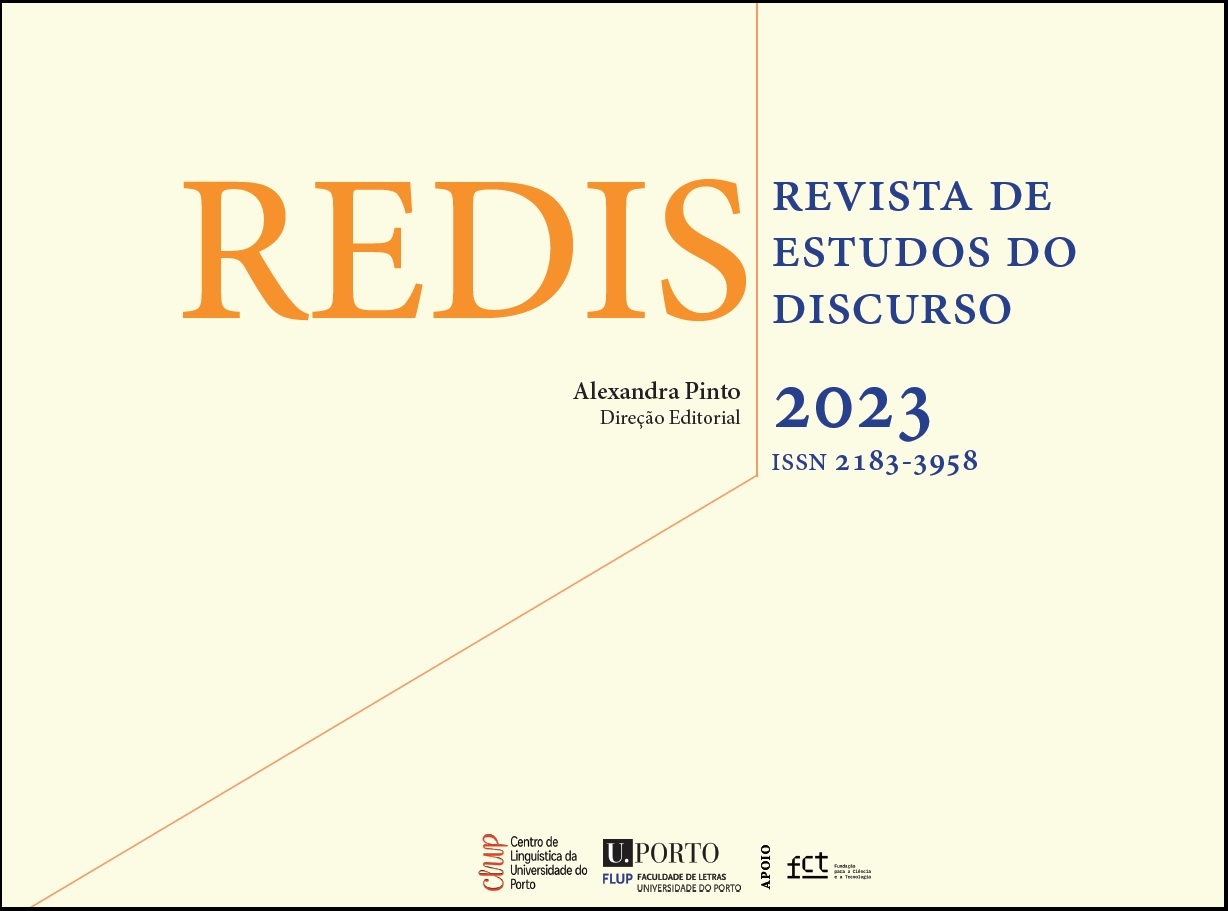The discourse of the ex-president of Brazil, Bolsonaro, in conflict with the concept of a secular State
DOI:
https://doi.org/10.21747/21833958/red12a6Keywords:
Secular State, Political discourse, Bolsonaro governmentAbstract
This article aims to analyze political statements in ex-president Jair Bolsonaro’s dis- course that conflict with the concept of a secular State. From the campaign slogan to the reproduction of a bible verse, the ex-president tends to direct his discourse, of a religious nature, to a conservative and Christian audience, which contributed significantly to his victory in the 2018 elections. This discourse aims to please this part of society, in order to maintain a political base as president and, in 2022, as a candidate for re-election. This analysis is based on theoretical formulations of Dis- course Analysis, exploring the relations between the studies of Pêcheux (ideological formations), Foucault (power relations) and Orlandi, demonstrating the relations between language, subject and historicity present in the discourse. In this way, the ex-president’s discursive intentions to maintain a portion of the electorate can be seen.
References
Brasil. (1988). Constituição da República Federativa do Brasil de 1988. http://www.planalto.gov.br/ccivil_03/constituicao/constituicao.htm.
Charaudeau, P. (2017). Discurso político. Contexto.
Curcino, L. (2021). Lives e livros: versículos e verdade na eleição presidencial brasileira. In: C. Piovezani, L. Curcino, & V. Sargentini (Orgs), Discurso e (Pós)verdade (1a ed) (pp. 105-134). Parábola
Foucault, M. (1995). O sujeito e o poder. In: H. L. Dreyfus, & P. Rabinow, Michel Foucault, uma trajetória filosófica: para além do estruturalismo e da hermenêutica (pp. 231-249). Forense Universitária
Orlandi, E. L. P. (1998). Discurso e argumentação: um observatório do político. Fórum Linguístico, 1 (1), 73-81.
Pêcheux, M. (1995). Semântica e discurso: uma crítica à afirmação do óbvio. Tradução Eni Pulcinelli Orlandi (2a ed). Editora da Unicamp.
Pêcheux, M., & Fuchs, C. (1990). A propósito da análise automática do discurso: atualização e perspectivas (1975). In: F. Gadet, & T. Hak. Por uma análise automática do discurso: uma introdução à obra de Michel Pêcheux. Editora da Unicamp.
Downloads
Published
How to Cite
Issue
Section
License
Copyright (c) 2023 Alex Rezende Heleno

This work is licensed under a Creative Commons Attribution 4.0 International License.
The authors give to REDIS. Revista de Estudos do Discurso the exclusive right to publish its texts, in any medium, including their reproduction and sale in paper or digital format, as well as their availability in a free access regime in databases.
















